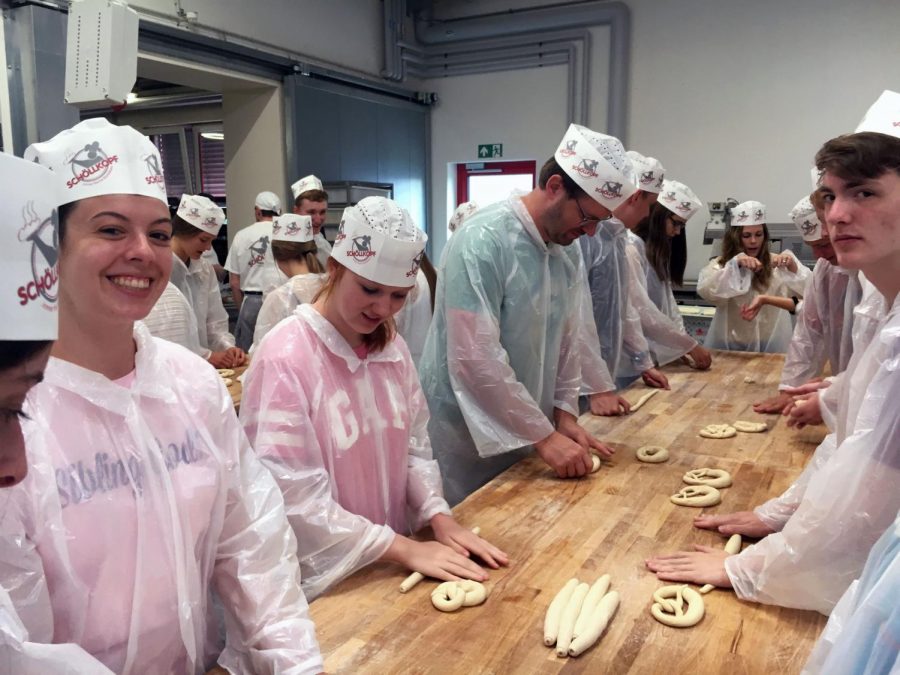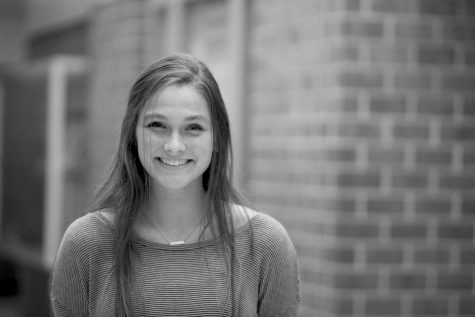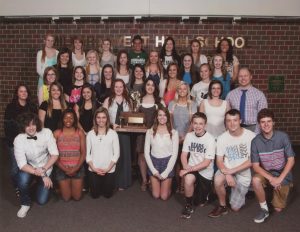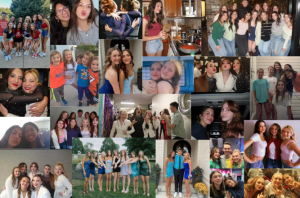Crossing Borders
First year of a new two-way German Exchange Program
October 12, 2018
4,731 miles separate Millard West from Sailer Gymnasium, a school in Waiblingen, Germany.
Through the German American Partnership Program (GAPP) Millard West was partnered up with Salier Gymnasium forming a new German exchange program. German teachers Wendy Langer and Andrea Turner built this partnership that offered students from both schools the opportunity to travel to the other and study abroad. This past summer was the first time the partnership was put into action.
Nineteen German club members and students arrived in Germany on June 5, to study abroad for 17 days. For the first week, the group spent their time acting as tourists in Munich, Germany. Their daily activities varied from a city-wide bike tour to a self-guided tour of Dachau Concentration Camp to summer bobsledding in the Alps.
“The bike tour through Munich was my favorite part,” senior Skyler Tucker said. “It was neat to see and hear about all of the history behind Munich. Every building had a unique significance from some point in history and are way different than the buildings we see in Omaha.”
The last 11 days of their trip were spent in Waiblingen, Germany. Each student stayed with a host family and became a part of their daily life, including going to school at Salier Gymnasium. Each student had their own unique, personal experience with their German families. As an entire group, they toured the Mercedes Benz Museum, learned how to make traditional German pretzels at a bakery and cooked homemade Käsespätzle, German mac and cheese. All 19 Wildcats did their best to soak up and absorb the German way of life before heading home.
On Sep. 3, 22 German students from Sailer Gymnasium arrived in Omaha for the second part of the exchange program. They spent 18 days trying to get accustomed to the Midwestern way of life. Everyone had a host family to stay with, for the students that hosted Wildcats during the summer, they stayed with the same people that stayed with them.
While in Nebraska, the German students were offered several different field trips – downtown Omaha, Durham Museum, the Henry Doorly Zoo and the Nebraska City apple orchards – throughout the school days. Outside of school, some of the Germans got to experience traditional Nebraskan activities like attending a Husker football game. Others, like Niklas Linder, looked forward to trying the local food places and going to general places, like Walmart, that they don’t have back in Germany.
“I think the food is similar,” Linder said. “You have more fast food here, in Germany we have McDonald’s, Burger King and KFC. I’ve tried Chick-fil-A and Wendy’s, it’s cool since you have choices, but I think if I lived here for more than three weeks I would get fat.”
This experience was life-changing for everyone involved. While it was hard at first to adjust to a new way of life, the time spent in another country was beneficial in several different ways. For instance, after living with a host family and experiencing their culture firsthand, it was evident that the two cultures had more similarities than differences.
“Everyone used and improved their German and English skills because they were reading, hearing and trying to speak it constantly,” Langer said. “It was amazing to see them learn and grow throughout the trip, from being nervous on the first train ride from the airport, to navigating the public transit system very comfortably. Traveling and living with a German or American family has impacted these students in ways that will be evident for the rest of their lives.”
This partnership is crucial because it allows students to gain real life experience with the culture and language in which they study so tirelessly. It is a way to merge the two cultures, while building new friendships that will last a lifetime and at the same time teaching important life skills that will benefit each individual in the long run.







